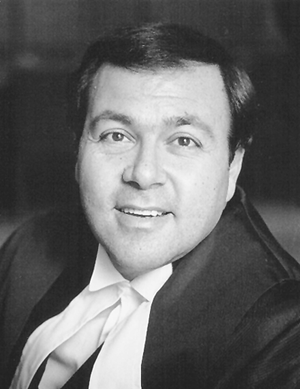Well known by the bar and the judiciary for his extraordinary sense of humour and the respect with which he treated everyone who entered his courtroom, Justice Marvin Catzman, a judge of the Ontario Court of Appeal for nearly 20 years, passed away June 15 of lung cancer. He was 68.

The son of lawyer Fred Catzman, Marvin Catzman was born in Toronto in 1938 and received a BA in sociology before going on to study law, earning an LLB from the University of Toronto law school in 1962. After his call to the bar in 1964, Catzman went on to serve as law clerk to the chief justice of the high court of justice of the Supreme Court of Ontario.
He practised civil litigation from 1965 to 1981 with his father’s firm, Catzman and Wahl, and was elected a bencher of the Law Society of Upper Canada in 1979. He was appointed to the High Court of Justice in 1981 and the Court of Appeal in 1988.
One of Catzman’s most notable judgments was a February 1993 decision to grant bail to Guy Paul Morin, pending Morin’s appeal on a first-degree murder charge for which he claimed he was wrongfully convicted. This at a time when both the public and the justice system weren’t convinced that wrongful convictions were even a possibility.
Appearing before Catzman many years ago, John Kromkamp, senior legal officer for the Ontario Court of Appeal, told Law Times he was always impressed with the kind and charitable way Catzman treated all counsel.
“The respect with which he treated counsel, even when I perhaps sometimes made arguments that he may well have thought to himself weren’t very good, he was nevertheless always constructive, kind, and charitable to me, and to every counsel.
“I think you would find a unanimous consensus that he was a gentleman and a charitable judge, as he was a human being,” he says.
Marie Henein, of Toronto firm Henein & Associates, appeared before Catzman numerous times and shares a similar sentiment.
“The thing that struck me the most in appearing before him, well two things really, is how quick he was in focusing on the central issue in the case, he had a very brilliant legal mind. And the second thing was how incredibly courteous he was to everybody that appeared in the court,” she says.
Remembering a case where she appeared as amicus and there were a number of difficult self-represented litigants, Henein says that Catzman managed everyone involved with an extraordinary sense of grace and humour.
“It was quite something to watch,” she says.
Catzman will be greatly missed by the bar and by his colleagues in the judiciary, says Henein.
“He was a very significant component of the Court of Appeal, and a very forceful presence at the Court of Appeal, but he really had a wonderful judicial manner about him and the ability to control the process, but to be at the same time charming and focused on the issue, he was able to do all of that.”
Kromkamp adds that “he had a tremendous sense of humour and he always seemed to be in a good mood.” He remembers how Catzman once wrote an ongoing series of humorous pieces for the Advocates’ Society Journal on “How to Lose an Appeal,” giving readers instructions on how to alienate a court within the first few sentences of an argument.
Catzman is survived by his wife, Lynn, son David, daughters Penny Sherman and Julie Catzman, sons-in-law Jarrett Sherman and Michael Arbus, and grandchild Darryn. Donations may be made to the Marvin A. Catzman Memorial Fund, care of the Benjamin Foundation.

 The son of lawyer Fred Catzman, Marvin Catzman was born in Toronto in 1938 and received a BA in sociology before going on to study law, earning an LLB from the University of Toronto law school in 1962. After his call to the bar in 1964, Catzman went on to serve as law clerk to the chief justice of the high court of justice of the Supreme Court of Ontario.
The son of lawyer Fred Catzman, Marvin Catzman was born in Toronto in 1938 and received a BA in sociology before going on to study law, earning an LLB from the University of Toronto law school in 1962. After his call to the bar in 1964, Catzman went on to serve as law clerk to the chief justice of the high court of justice of the Supreme Court of Ontario.